Chapter Six – the sixth letter
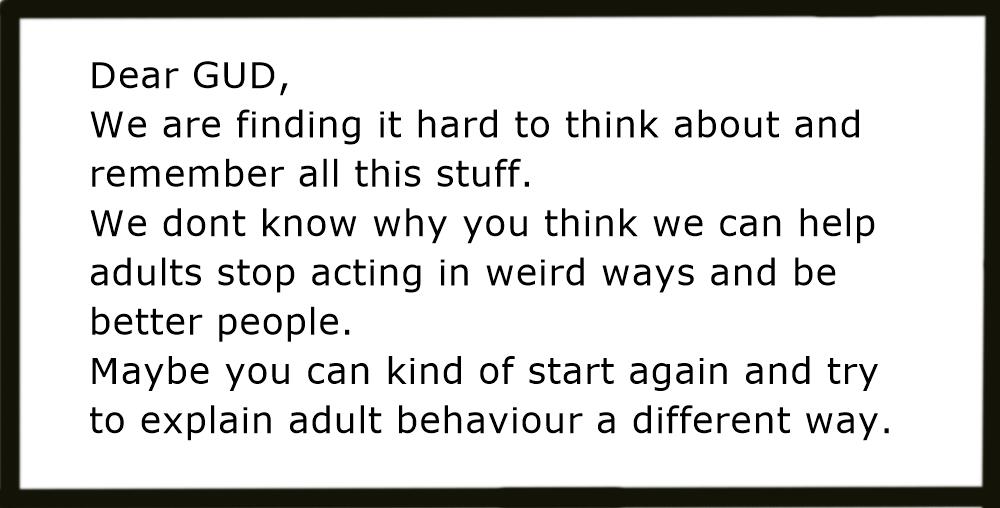
⇓
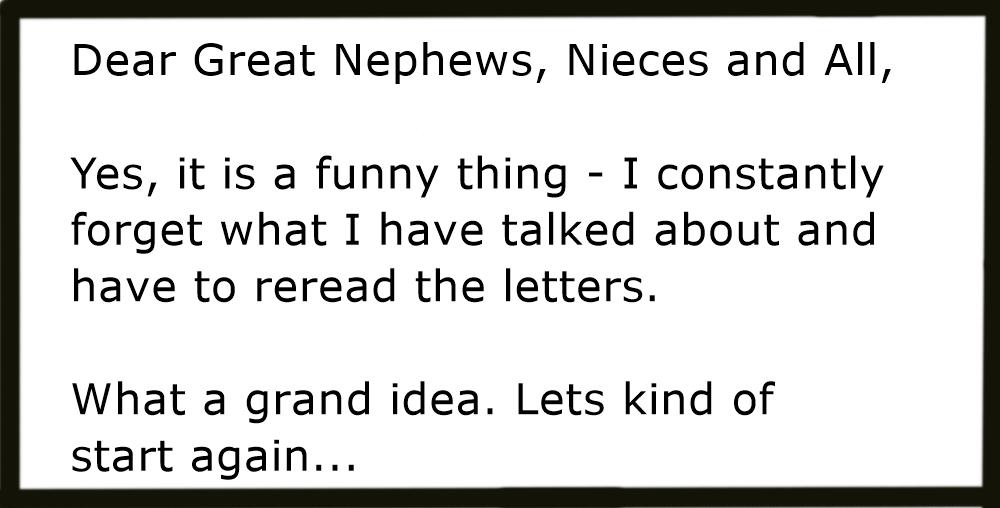
⇓One
You, like everyone, were born with quite a lot of it.
Without it, life is very miserable and it is well possible humans would not even survive.
Its been mentioned in these letters and, no, it is not the ego.
It is paradox: it involves suffering even as it enables us to learn and have fun.
I knew very little about it until I was nearly 60 years old. Then one day…
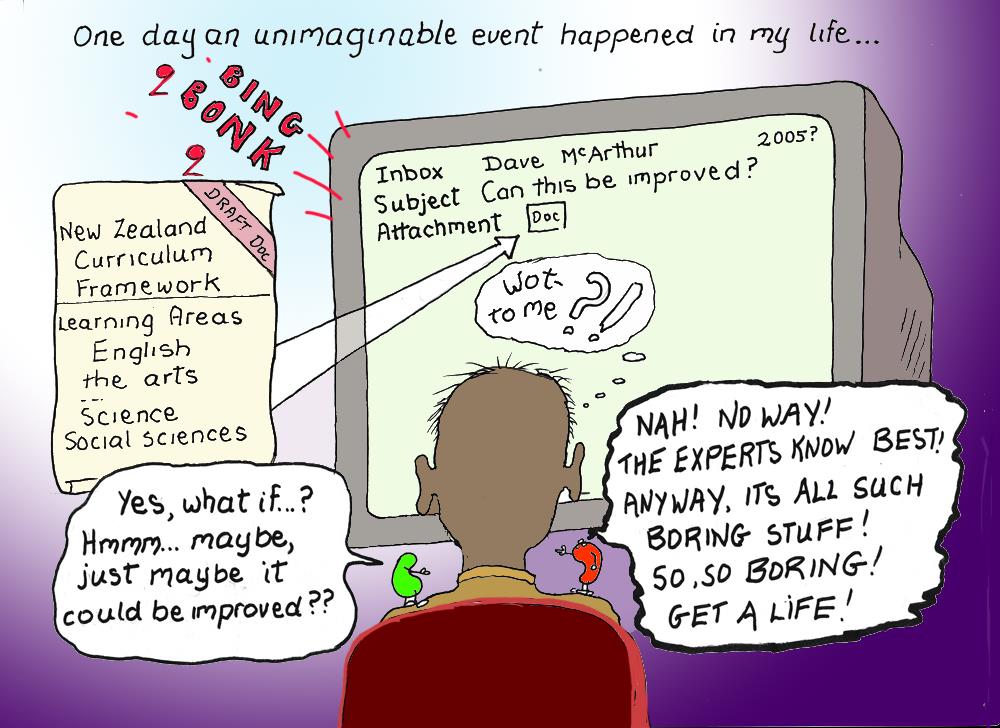
⇓Two
It so happens I trained to be a teacher when I was over 50 years old and I got to know some of the “education experts” who write these rules for teachers. I discovered they are very ordinary, fumbling, well-meaning, “weird” people like me. I had met many less educated and much wiser people.
An amazing question occurred to me as I gazed at the document, “What if… what if… could it be our English education curriculum is nonsense?”
For 50 years I had assumed our teachers are right and I am an education failure.
Words, and maybe even drawings, cannot express my excitement on realizing this might not be true…
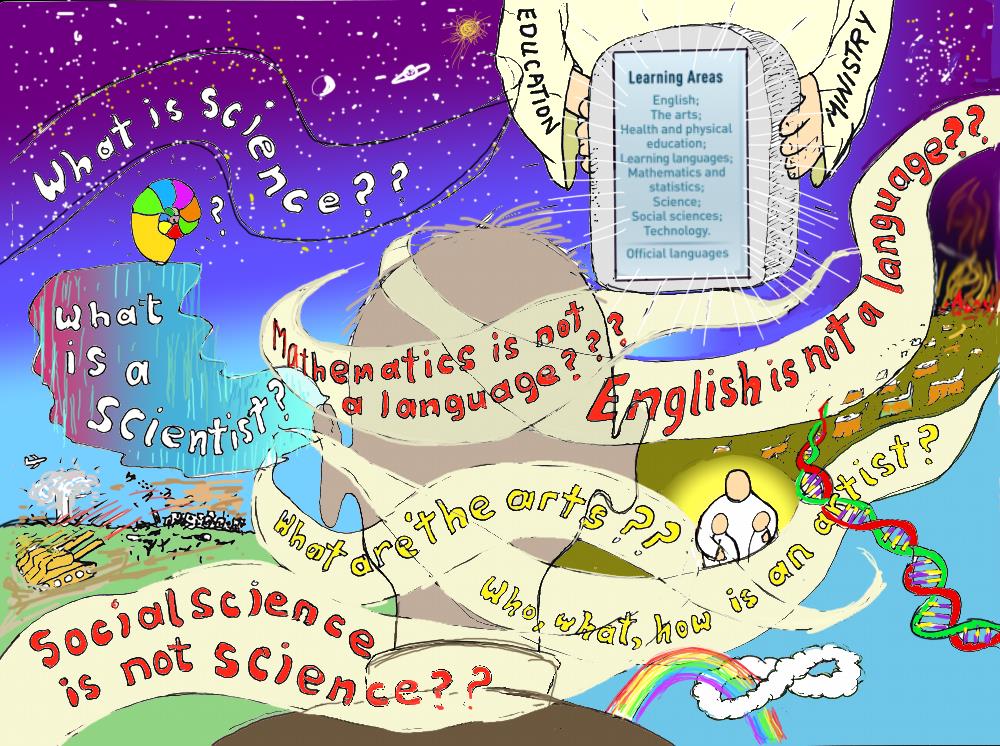
⇓Three
Its funny what us adults are concerned about. Every day we tick the boxes:
check hair combed -OK;
check collar out -OK;
check socks match – OK;
check tie/lipstick straight – OK;
check cellphone charged – OK…
It is a rare day that any of us check our use of vital words is correct.
You know, I had never thought to question my use of powerful words like “English”, “Science”, “Art” and “Language” in all my years – not even when I was over 50 years old and training to be a teacher.
Why not?
Maybe it was because the teachers of us trainee teachers never asked us, “Can this education framework be improved?”
Maybe it was just the way this great question popped up in my email inbox?
Anyway I now looked with fresh eyes at these laws prescribing how you and I must be taught at school. And deep down some part of me said, “Woh…wait a minute…something super vital seems to be missing here…and I sense our notion of “Science” has got something to do with it…but what exactly is Science?”
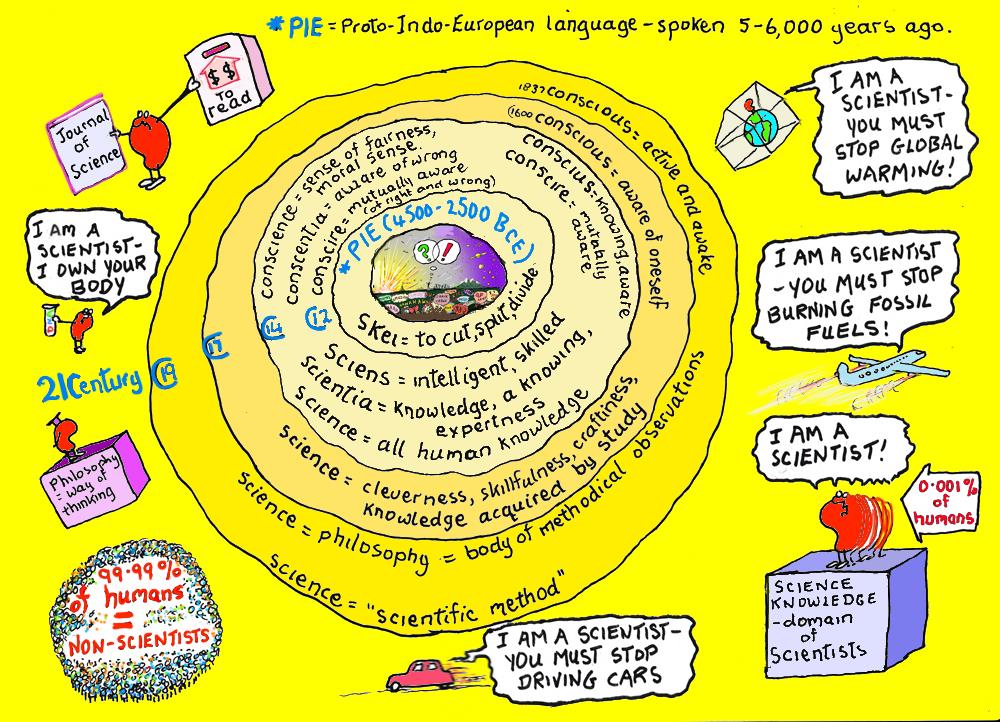
⇓Four
What do you reckon? It seems to me the meaning of “science” has changed a lot over recent centuries. However I did not know this as I studied the draft curriculum back in 2005. All I knew is the explanations of all my Science teachers no longer made sense to me. A lot of things said and done in the name of “science” this past century baffled me. I had often observed how people called “scientists” can say one thing, do the opposite and be oblivious to the contradiction.
It occurred to me that maybe there is a better way of understanding what “science” is. I sort of asked the universe(s) for guidance and, to my surprise, a rather amazing question occurred to me…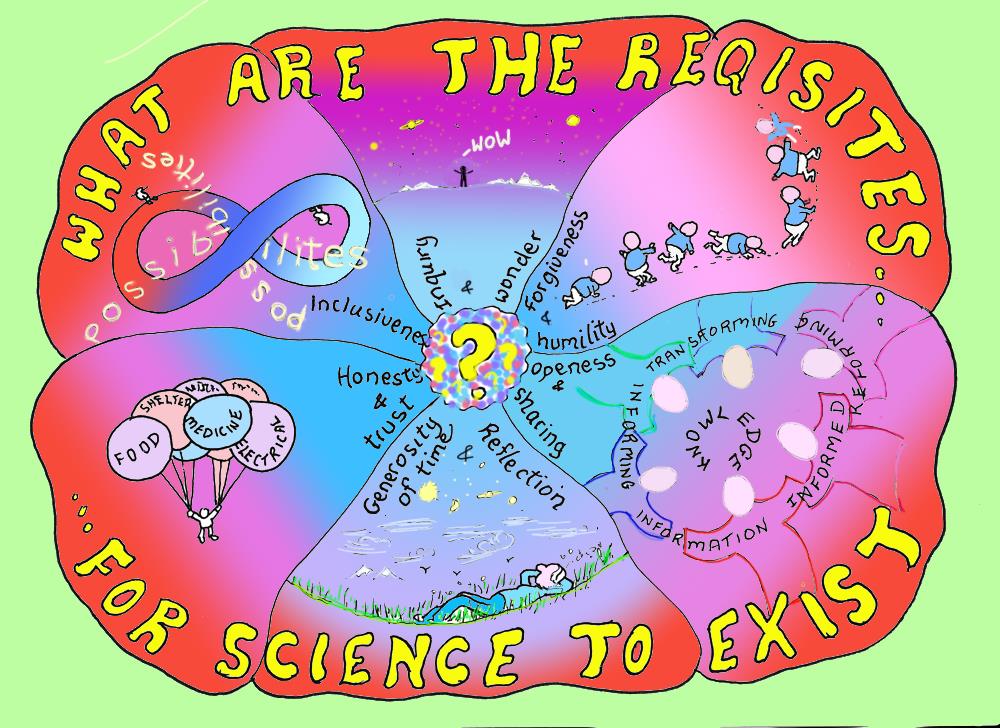
⇓Five
Have you ever had an “Aha” moment? You are wandering along when suddenly, with no warning, you encounter a magnificent view. It is so breath-taking that an “Aha” bursts out of you.
So here I am scrambling in a confused way through the rather dark, dingy world of our education framework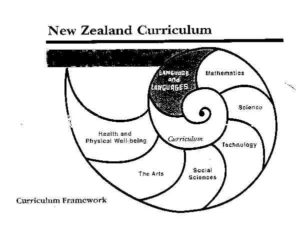 when – “Aha”- an amazing, rich and meaningful world opens up to you. There it is – the vital missing ingredient in all its glory. Have you guessed what it is yet?
when – “Aha”- an amazing, rich and meaningful world opens up to you. There it is – the vital missing ingredient in all its glory. Have you guessed what it is yet?
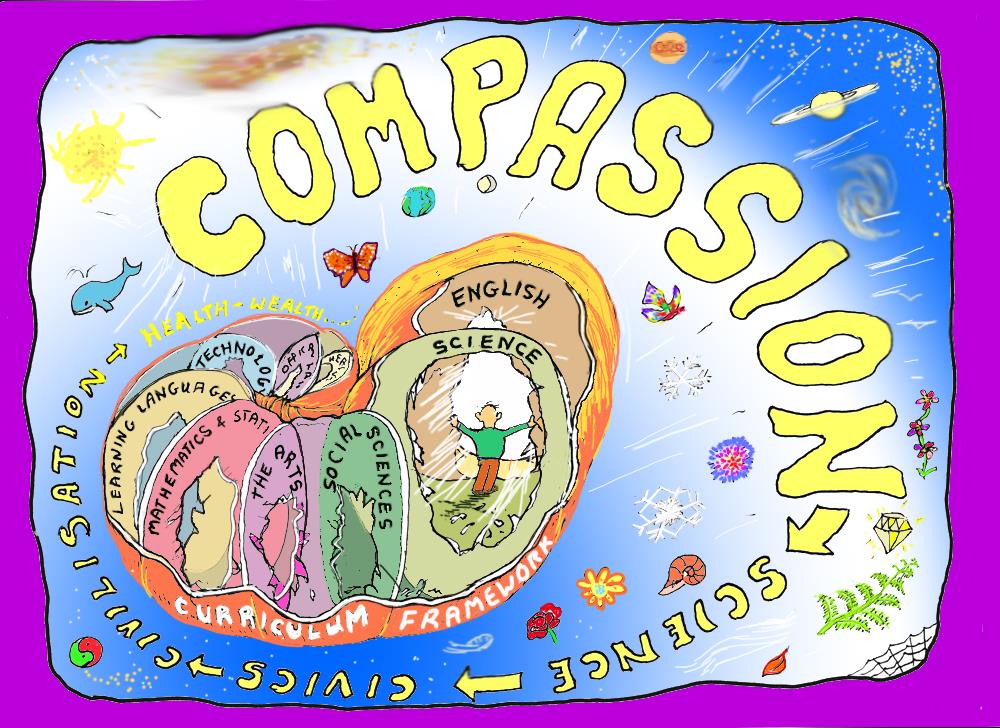
⇓Six
Compassion is an ancient word. Seems it comes from “com” (with, together) and “pati” (suffer, endure).
Suffering alone or together? Enduring life? That doesn’t sound much fun, does it.
Well, that’s what I thought until something reminded me how everything is paradox. Do you recall how we played with paradox in our second letter “Fun with Paradox”?
Sometimes things can be connected in ways we cannot think. Can you imagine how such different sensations as suffering and joy are interconnected? Its not easy to. I am sure you agree there is much pain and hurt in the world.
A paradox of compassion is that we might find life more fun when we are honest about the suffering and try to act in ways that lessen it.
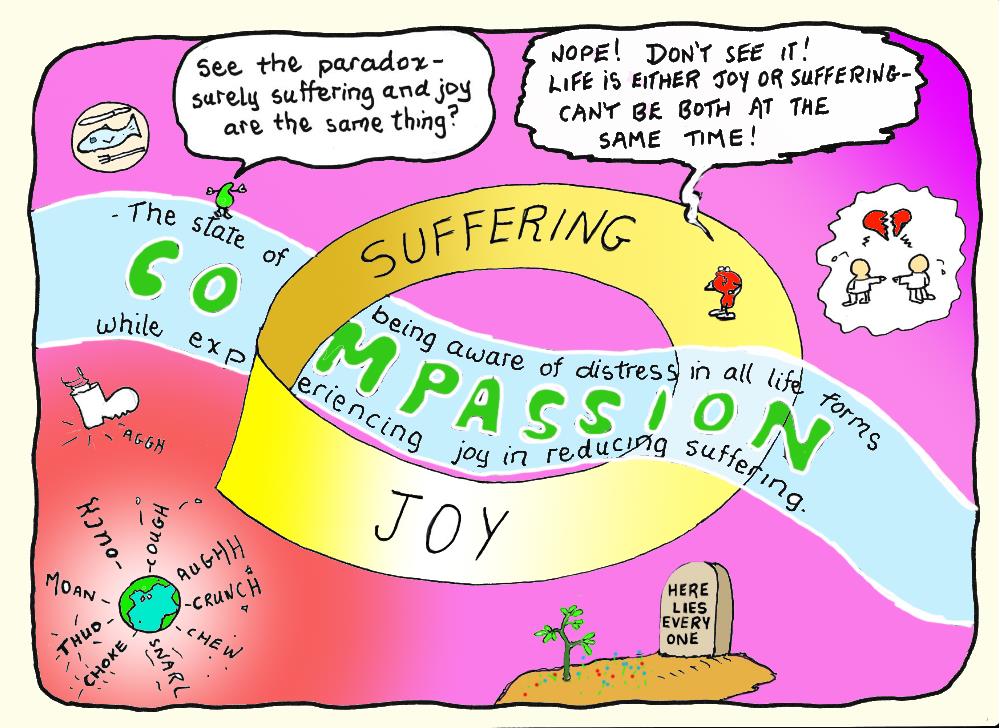
⇓Seven
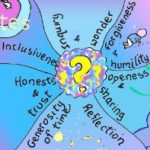
Honesty. Inclusiveness. Sharing. Inquiry…I gazed at my list of requirements for science to exist and a huge wave of “What ifs?” hit me. What if our teachers and “scientists” have it all wrong? They say science is a special way of thinking. What if science is far, far more than just a type of thought? What if science is actually a complete way of living?
These questions opened up even more exciting possibilities.
Do you remember how you were always asking questions when you were a young child? Why this? Why that? Why why?
Well, what if you, me, everyone is born a scientist to some extent?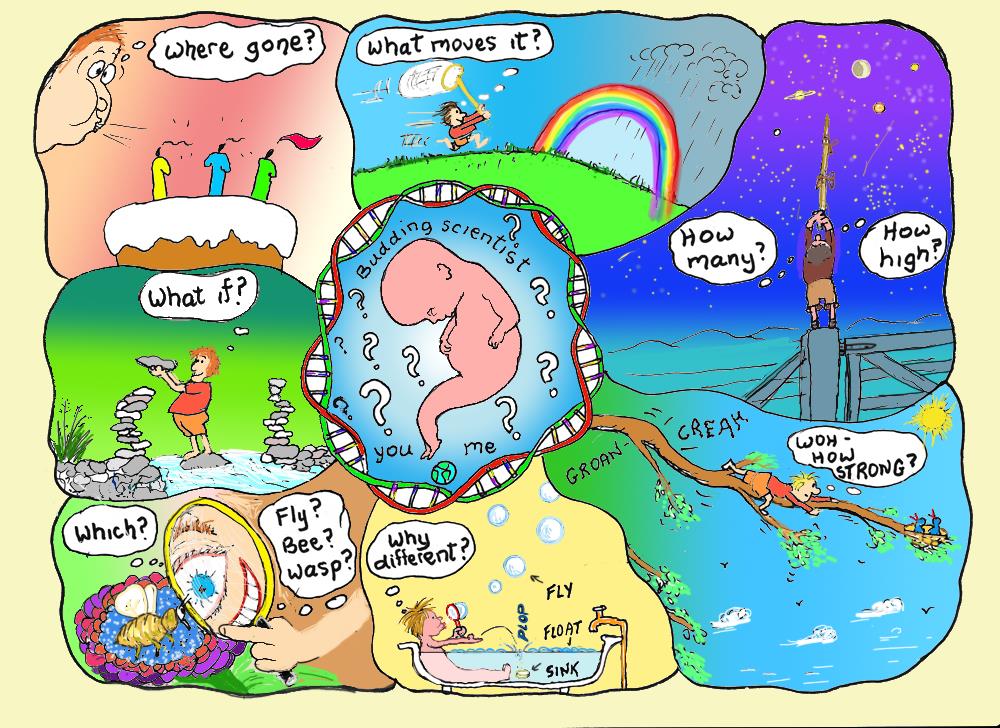
⇓Eight
How exciting. What if science is actually about being a compassionate person. That idea really changes how most of us adults see ourselves.
It means you, me and everyone is a scientist to some extent while no person is truly a scientist.
This understanding of human beings is very different to what most of us adults learned in English schools. Our “science” teachers never mentioned compassion. In fact we learned that “science” is for a special breed of very clever people – they are so rare that less than one in a hundred of us can become a “scientist”. In other words, nearly all of us grew up to believe we are sort of dumb “non-scientists”.
We also learned that “science” is kind of the opposite of the “the arts” and even fewer of us could or would become “artists”. What if this is untrue too? After all, the meaning of these words has changed hugely over recent centuries…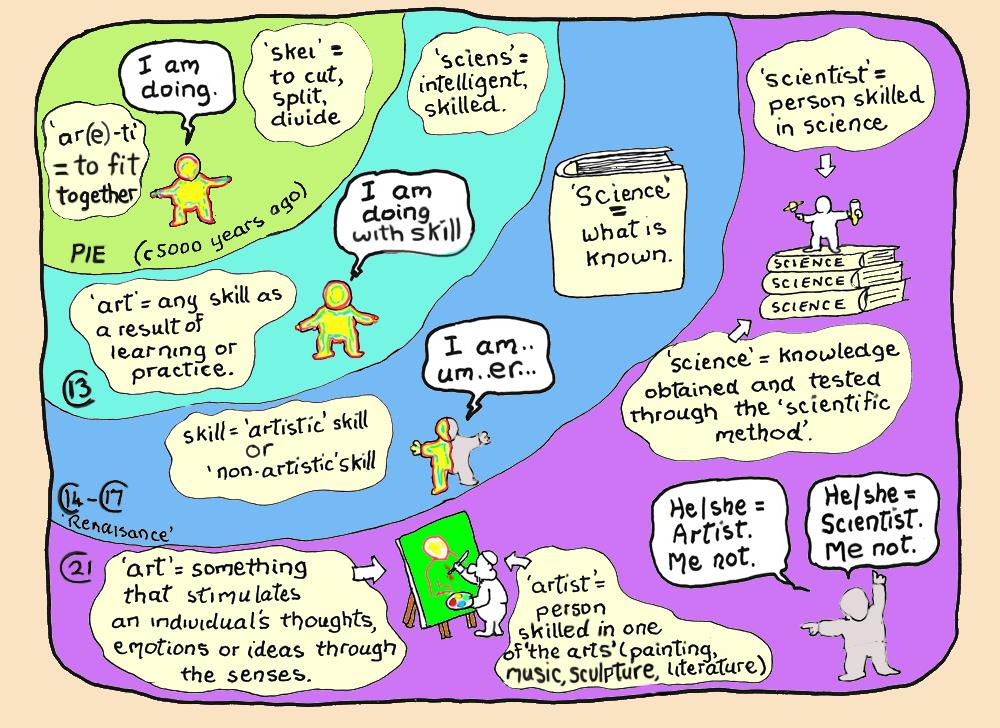
⇓Nine
Remember our letter about the trickster ego? It’s the part of every human being that makes us act in greedy, uncaring ways. It is so clever, divisive, deceitful and delusional that it can disconnect us from reality. It causes great suffering and it can even destroy us if we lack compassion. What if our ancestors understood this and were much wiser than the adults who enforce our modern English education system? What if the meanings they gave to words are much more insightful and sustainable?
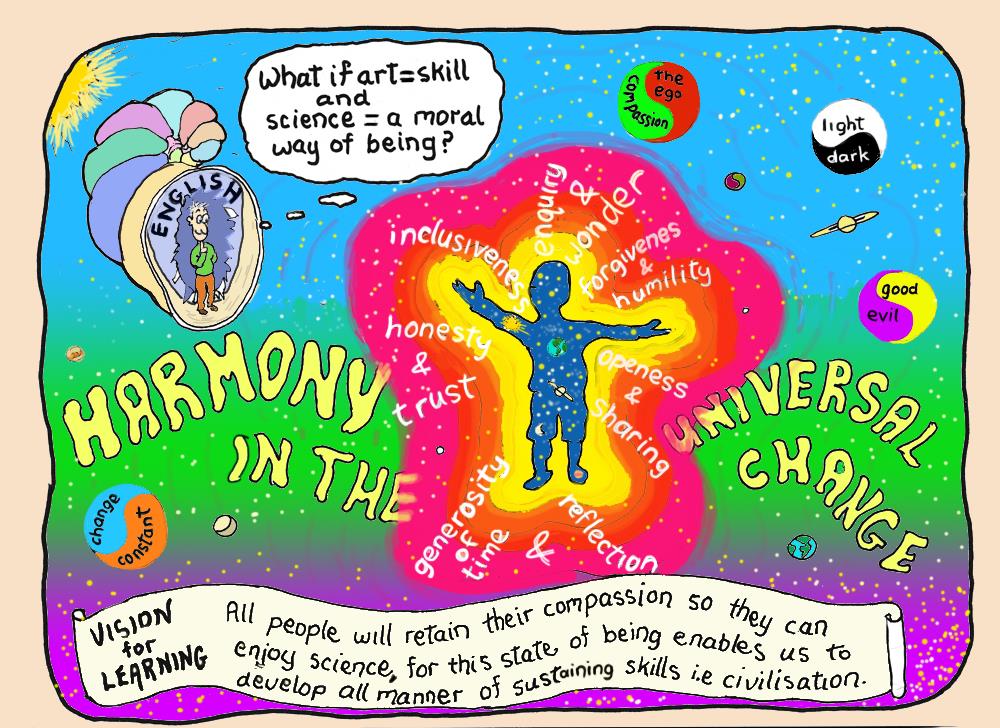
⇓Ten
Could it be that adults who describe themselves or other people as “scientists” or “artists” are being rather vain and foolish or sad and belittling?
We all enjoy some knowledge and skills but who of us can honestly say they never make a mistake? And if no one is perfect, then no one is truly a “scientist” or an “artist”. Rather each of us is a bit of a scientist and a bit of a non-scientist. Similarly each us of us is a bit of an artist and a bit of a non-artist. A person might be an amazing expert on some small aspect of existence but that does not mean they develop the arts required to be a sustainable human being.
In brief, all this suggests that you and I and everyone is most probably born with a fantastic potential to ask questions about everything, test out ideas and develop all types of arts (skills) so we can help ensure everyone can enjoy the best in life…
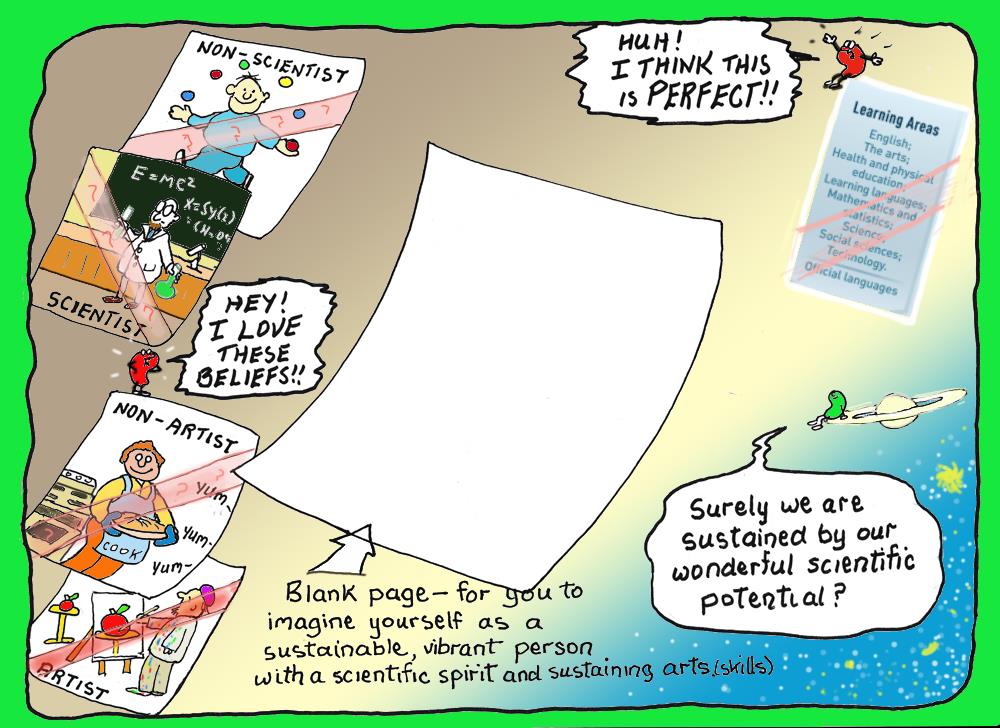
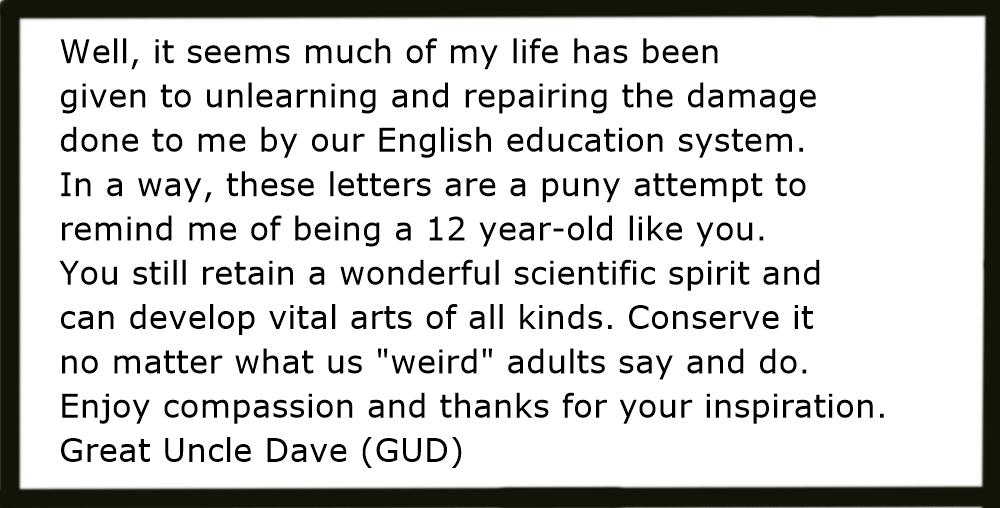
Next – Dear GUD Letter 7 The Environment Trap
Previous -Dear GUD Letter 5 -Actual Reality
First draft 10 July 2018
